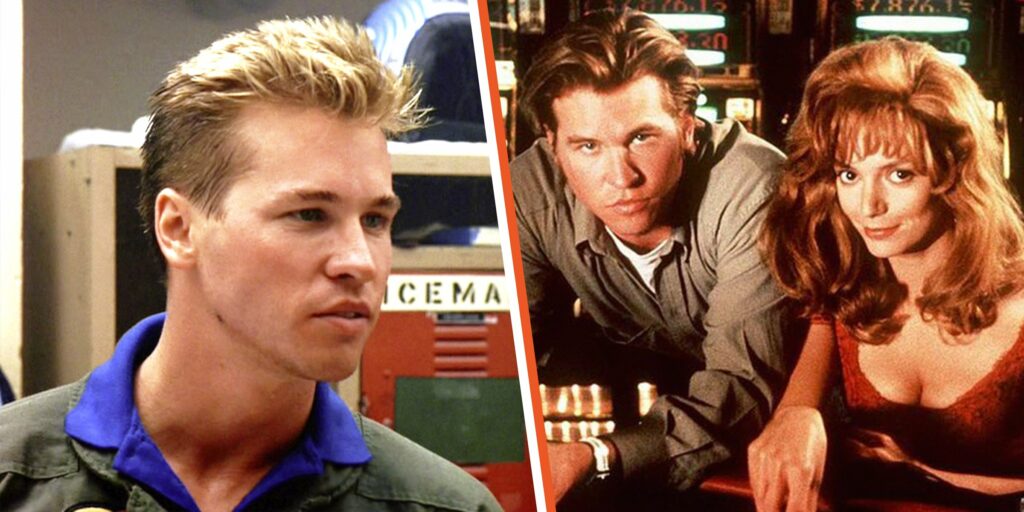In the labyrinthine alleys of Hollywood, where the glimmer of stardom often masks the mayhem behind the scenes, few tales of on-set behavior are as vividly tumultuous as that of Val Kilmer and Marlon Brando during the filming of “The Island of Dr. Moreau.” Both actors, notorious for their strong personalities and clashes with filmmakers, brought a storm of eccentricity and challenge to the production, each earning the label of a difficult genius in their own right..

When Titans Clash: Kilmer Meets Brando
Val Kilmer, known for iconic roles in “Top Gun” and “Batman Forever,” has often been spotlighted not just for his cinematic contributions but also for his reputation as a challenging collaborator. This reputation was put to the test when he was cast alongside Marlon Brando, a legend with a penchant for chaos, in “The Island of Dr. Moreau.”
I had attitudes that I learned and adopted that were easy to imagine in relation to the Marlon Brando school. Not even the acting behavior, but the lifestyle, the attitude that the filmmaker doesn’t know what he’s doing, that you have contempt for everybody except a couple of people. Basically, spoiled. Brando was extremely talented, a genius, but he was also very spoiled.
Brando’s own antics on set are legendary, often marked by his refusal to leave his trailer or learn his lines, adding layers of difficulty for the production staff. Richard Stanley, the original director, and his replacement, John Frankenheimer, both vocalized their frustrations with the actors, but particularly with Kilmer’s behavior, which seemed to mirror the chaotic energy Brando brought to the set.

The Dark Side of Val Kilmer
Kilmer’s on-set shenanigans have been a topic of discussion among many who have worked with him. Joel Schumacher, director of “Batman Forever,” labeled Kilmer as “psychotic” in an interview with Entertainment Weekly. Kevin Jarre, another filmmaker, shared a particularly striking incident:
There’s a dark side to Val that I don’t feel comfortable talking about. [We] were deep in conversation about Doc Holliday, and this stand-in brought over a very colorful sort of locust and said, ‘Look what I found!’ I looked up and said, ‘Hey, that’s pretty good,’ and Val, without saying a word, grabbed the locust from the guy and ate it. And it was big. He said to me, ‘As you know, I have a reputation for being difficult. But only with stupid people.
These incidents paint a picture of an actor who not only challenges the norm but also creates an atmosphere that can be both intriguing and intensely problematic. Frankenheimer’s outright disdain for Kilmer was evident when he stated, “Val would arrive, and an argument would happen. I don’t like Val Kilmer, I don’t like his work ethic, and I don’t want to be associated with him ever again.”
Reflections on a Spoilt Genius
Despite his own problematic behaviors, Kilmer’s criticism of Brando as a “spoilt genius” highlights an intriguing reflection of self-awareness and perhaps, a critical view of his own methods. It underscores the complex nature of artistic brilliance — often accompanied by a tumultuous personal demeanor that can both enrich and complicate the creative process.
In the grand tapestry of Hollywood’s storied past, the tumultuous co-existence of Kilmer and Brando on the set of “The Island of Dr. Moreau” serves as a compelling chapter on the intricacies of genius and the personal vendettas that sometimes shadow the brightest of stars. Their legacy, marred by controversies, continues to evoke discussions on the fine line between genius and madness in the high stakes world of film.

